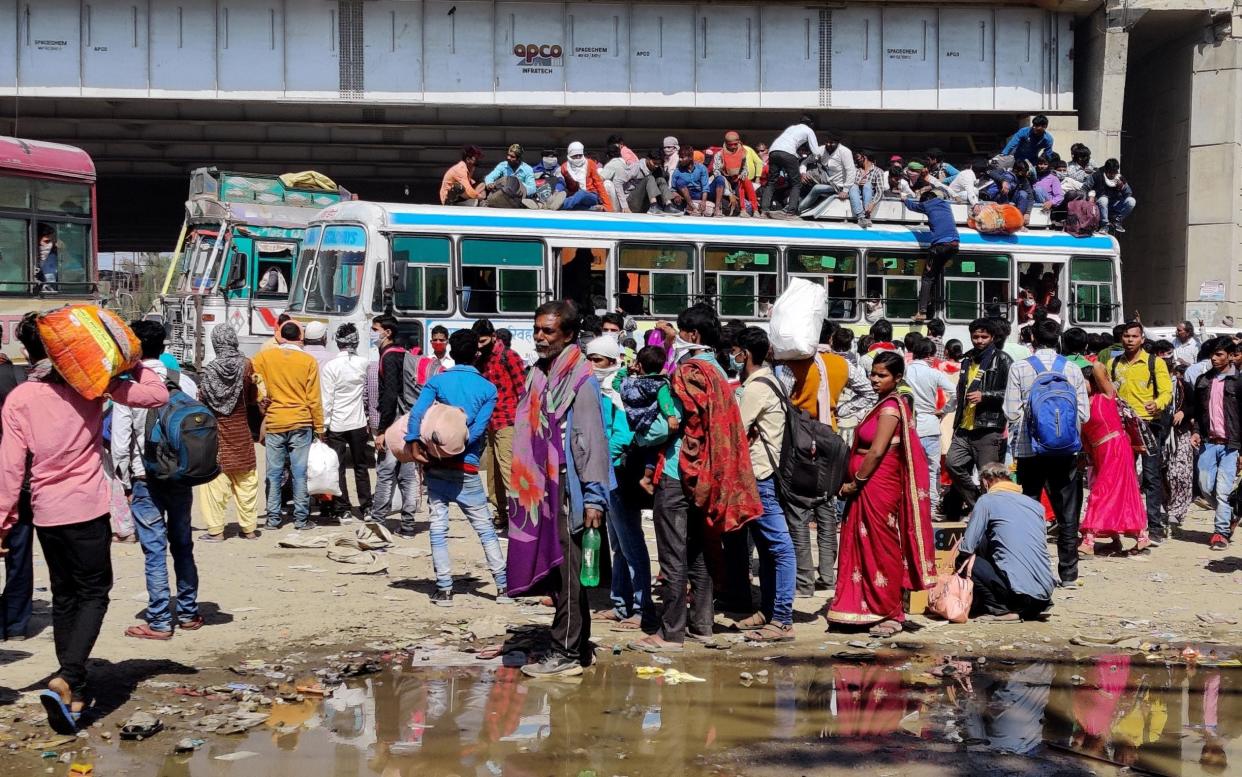Half of world’s workers at risk as coronavirus devastates jobs

Half of the world's workers could lose their livelihoods due to the coronavirus pandemic, the International Labour Organisation has warned, with the poorest likely to suffer the brunt of the damage.
An estimated 1.6bn workers are at risk, with those in the informal economy facing the greatest hazards. These are typically jobs with extremely limited basic protections, meaning they have little private or government support to fall back on. Tradespeople and factory staff in the developing world are believed to be among those most exposed.
The number of hours worked globally is set to fall by more than 10pc in the second quarter of the year, the organisation (ILO) estimates. That is equivalent to the loss of more than 300 million full-time jobs, or a major hit to income spread across millions more.
Guy Ryder, director-general of the United Nations agency, said: “We have to think of the human suffering, the human need, which stands behind that extraordinary figure.
“Of the two billion informal workers of the world, about 1.6bn have suffered massive damage to their ability to earn a living and to support themselves and their families because of the current Covid 19 crisis."
Informal workers suffered an average 60pc drop in their income worldwide, with workers in Africa and the Americas hit even harder.
However, the ILO said improvement could be rapid as the pandemic passes and workers can return to their jobs.
Mr Ryder said: “It does sound terrifying, but as national economies unlock, as and when they can, these figures can come down very quickly as well. Although the nature and timing of this recovery remains an open question.”
He praised governments in wealthy economies including the UK for their furlough schemes, which he said prevent job losses and will aid that recovery, as well as the benefits on offer for those who are now unemployed.
Flexibility will be needed as economies come out of lockdown because businesses that thrived until the start of the year may not be able to re-hire all of their staff either immediately.
There will potentially be a long-term hit to employment as social distancing remains in place and methods of work and travel change.
Mr Ryder said: “We left work, we downed tools, on one day it was literally like turning the light off as we left the office - going back is going to be a much more complex, gradual, progressive and difficult process to manage in logistical terms."
Despite the major support schemes in rich economies, Mr Ryder warned that far less has been done for the world’s poorest. He fears they are now bearing the brunt of the worst recession since the Second World War.
He said: “It is quite clear we are not seeing sufficient investment of resources to support the pandemic response, the response to the economic and social consequences of the pandemic.
“Nor is there sufficient co-ordination of the individual stimulus measures taken country by country.
“We need to do this. The underlying message is for those countries which have very large informal economies, the need for assistance and support so they can do what is needed, so they can avoid citizens choosing between going out and earning a living or not being able to feed their family. We need to step up internationally.”
When it comes to reopening the economy, the ILO recommends providing details about exit strategies in advance.
This includes co-ordination between governments, businesses and unions to make sure workplaces are safe and workers feel confident to return.

